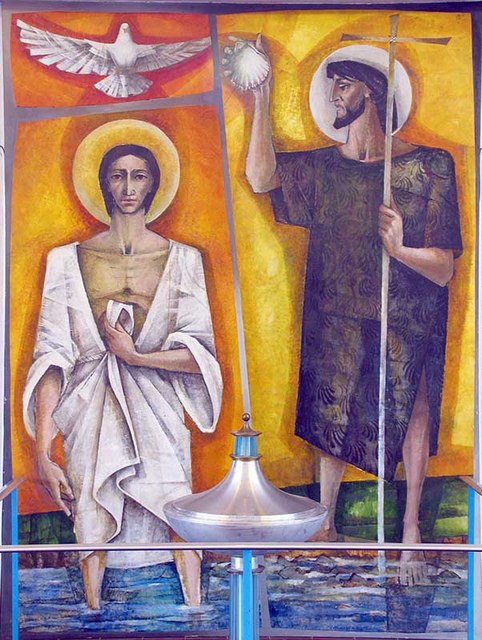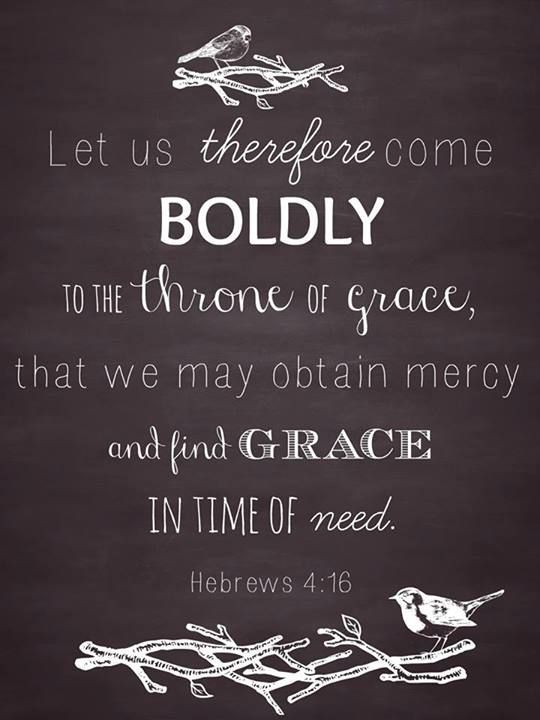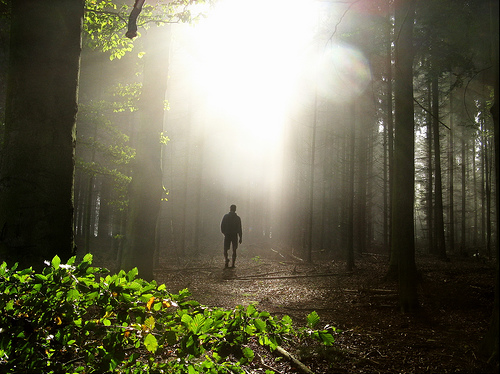Reflections on starting journeys: themes from baptismal scripture
If you can’t fly, then run,
if you can’t run, then walk,
if you can’t walk, then crawl,
but by all means keep moving.
– Martin Luther King Jr.
BELOVED IS WHERE WE BEGIN — Jan Richardson
If you would enter / into the wilderness,
do not begin / without a blessing.
Do not leave
without hearing / who you are:
Beloved, named by the One
who has traveled this path / before you.
Do not go / without letting it echo
in your ears, / and if you find
it is hard / to let it into your heart,
do not despair. / That is what
this journey is for.
I cannot promise / this blessing will free you
from danger, from fear,
from hungeror thirst,
from the scorching of sun or the fall of the night.
But I can tell you that on this path there will be help.
I can tell you that on this way there will be rest.
I can tell you that you will know
the strange graces that come to our aid
only on a road / such as this,
that fly to meet us
bearing comfort and strength,
that come alongside us / for no other cause
than to lean themselves / toward our ear
and with their / curious insistence / whisper our name:
Beloved.
Beloved.
Beloved.
SONGS about STARTING a JOURNEY
- Don’t Stop Believin‘ by Jounrey (pop): https://youtu.be/1k8craCGpgs
- Ghost / I Keep Going to the River by Ellie Henderson (pop): https://youtu.be/tA8AfQaUnXM
- My Fight Song by Rachel Platten (pop): https://youtu.be/xo1VInw-SKc
- The Journey by IFC Worship (Christiian): https://youtu.be/Uawxvj6nUPU
- Hard Love by Just Can’t Breathe (pop) :https://youtu.be/IDWhCaDgd3Y
- Will You Let Me Be Your Servant? piano : https://youtu.be/O-bFuqEiIKw
- Control by Zoe Wees (pop); https://youtu.be/VghvmL0G144
- Someday by OneRepublic (pop): https://youtu.be/vNfgVjZF8_4
- I’m No Longer a Slave to Fear by Zaxch Williams: https://youtu.be/bDnA_coA168
- Start of Something Good by Daughtry (country): :https://youtu.be/WKsyxZWQ_g0
- Start of Something New by Disne (musical): https://youtu.be/gP8xwlUbzE4
- At the Beginning by Anastasia animated film (musical): https://youtu.be/EgqXg9qPefE
Are you in earnest? Seize this very minute,
Whatever you can do, or dream you can—begin it;
Boldness has genius, power, magic in it;
Only engage,—and then the mind grows heated;
Begin!—and then the work will be completed.
—Goethe
It’s just as well, my pitcher shattered
I’m free of all that hauling water!
The burden on my head is gone….
A single well, Kabira
And water-bearers many!
Pots of every shape and size
But the water always One.
— ‘Bhala Hua Meri Gagri Phooti’ –song of Kabir.
translated by Rabindranath Tagore 1915, 55-56
Blessing the Baptism — Jan Richardson
As if we could call you
anything other than
beloved
and blessed
drenched as we are
in our love for you
washed as we are
by our delight in you
born anew as we are
by the grace that flows
from the heart of the one
who bore you to us.
STARTING a JOURNEY
A journey of a thousand miles begins with a single step.– Lao Tzu
To dare is to lose one’s footing momentarily. To not dare is to lose oneself. – Søren Kierkegaard
The only impossible journey is the one you never begin. – Tony Robbins
The key to realizing a dream is to focus not on success but significance, and then even the small steps and little victories along your path will take on greater meaning. – Oprah Winfrey
We are what we repeatedly do. Excellence, then, is not an act but a habit. – Aristotle
Don’t judge each day by the harvest you reap, but by the seeds that you plant. – Robert Louis Stevenson
Tell me, O Swan, your ancient tale.
From what land do you come, O Swan ?
to what shore will you fly ?
Where would you take your rest, O Swan, and what do you seek ?
Even this morning, O Swan, awake, arise follow me !
There is a land where no doubt nor sorrow have rule: where the terror of Death is no more.
There the woods of spring are a-bloom, and the fragrant scent “He is I” is born on the wind:
There the bee of the heart is deeply immersed and desires no other joy.
— Poems of Kabir, translated by Rabindranath Tagore 1915, 55-56
COMMENTARY on BAPTISM
So I hope in this baptismal life ahead of you that when you encounter water – this most common of substances which surrounds land and comprises our bodies…I hope when you drink it in; when you dive deep in a pool of it; when you wade in a stream of it; that even when you wash dishes with it; I hope that you are reminded of the promise of life eternal: a promise that life with God is as close to you as water and bread and wine and human bodies. Because to be Christian is to know that the eternal is always contained in the present. — Nadia Bolz-Weber
Water figures in many of Jyoti’s paintings, as too in biblical imagery: the waters that were ‘the face of the deep’ before creation; the waters of the flood, over which the rainbow shone, sign of God’s covenant of peace with all creation; the waters of the Red Sea parting to liberate the fleeing slaves, the ‘children of Israel’; the ‘water of life’ with which Jesus identified himself, both with the alienated woman at the well and during debate in the temple; the waters of baptism – that of Jesus and of those who accept his way. — Jyoti Sahi Art Ashram
Jesus has become part with the waters. His character is innately like that of water. … water seeks out the lowest place. Or, as [St] Francis says in his Hymn to Creation, the waters are humble – they offer life to others and for others – and in themselves are clear, like light. — Jyoti Sahi Art Ashram
Daily Advent Devotional (Day 26)
Wednesday, Dec 23 – DAY 26
As we draw closer to the celebration of holy love’s arrival within our lives, as honored on Christmas Day, we may reflect on how our human experience of love has already shaped us. Who in our early lives offered us models of love? What forms did that love take?
Often we see God through the lens of the primary relationships from our childhoods. This doesn’t imply that there’s a right or wrong way to relate to God, simply acknowledges that our lived experiences inform the way we connect to God.
Is your relationship with God one that is intimate or distant? Is God, to you, a faraway deity who observes, but doesn’t get involved? Or is your connection to God one of friendship and immediacy? Do you find God in nature or through action and volunteering?
How is love expressed in your life? What face does it wear? What language does it use to reach you? How does it illuminate your life? — Rev Gail
For you, O Lord, are good and forgiving, abounding in steadfast love to all who call on you. — Psalm 86:5
As the Father has loved me, so I have loved you; abide in my love. — John 15:9
Being deeply loved by someone gives you strength, while loving someone deeply gives you courage. — Lao Tzu
We are shaped and fashioned by those we love. — Goethe
Love is not really an action that you do. Love is what and who you are, in your deepest essence.Love is a place that already exists inside of you, but is also greater than you. That’s the paradox. It’s within you and yet beyond you. This creates a sense of abundance and more-than-enoughness, which is precisely the satisfaction and deep peace of the True Self. You know you’ve found a well that will never go dry, as Jesus says (see John 4:13-14). Your True Self, God’s Love in you, cannot be exhausted. — Richard Rohr
Reflections on boldness, mercy & grace: themes from Hebrews 4
How will you come boldly into the presence of God, of Love? What does it mean, for you, to trust that you will receive the help you require, if not the help you desire, even if you cannot possibly merit it? Have you ever felt such a moment, being utterly loved and supported? Have you ever offered that sort of love and support to someone else? What sort of grace, or help, do you need?
How does the Meadow flower its bloom unfold?
Because the lovely little flower is free down to its root,
and in that freedom bold.
— William Wordsworth (excerpt)
Are you in earnest? Seize this very minute –
What you can do, or dream you can, begin it.
Boldness has genius, power, and magic in it.
Only engage, and then the mind grows heated —
Begin it, and the work will be completed!
— John Anster (excerpt) translation of Part One of
Johann Wolfgang von Goethe’s“Faust”
On Boldness
Dream a big dream, a bold dream. Don’t play conservatively between the 40 yard lines. Don’t just play it safe. — Robert Kraft
Fortune befriends the bold. — Emily Dickinson
Be bold, be brave enough to be your true self. — Queen Latifah
Shine like the whole universe is yours. — Rumi
Continue reading “Reflections on boldness, mercy & grace: themes from Hebrews 4”
Meditations on Psalm 23 & 1 John 1:7 – Walking in the light
Blessing the Way — Jan Richardson
With every step
you take
this blessing rises up
to meet you.
It has been waiting
long ages for you.
Look close
and you can see
the layers of it,
how it has been fashioned
by those who walked
this road before you
how it has been created
of nothing but
their determination
and their dreaming,
how it has taken
its form
from an ancient hope
that drew them forward
and made a way for them
when no way could be
seen.
Look closer
and you will see
this blessing
is not finished,
that you are part
of the path
it is preparing
that you are how
this blessing means
to be a voice
within the wilderness
and a welcome
for the way.
(Rev Gail’s note: Used as this week’s call to worship)
Meditations on Psalm 23
“… prompted by 9/11 … in the wake of the attack, everybody from my next-door neighbor to Tom Brokaw was asking me, How could God let this happen? The answer I found myself giving was that God’s promise was never that life would be fair. God’s promise was that when we have to confront the unfairness of life, we will be able to handle it because we won’t do it alone–He’ll be with us. After I’d said that a couple of times, I realized that’s the 23rd Psalm. “I will fear no evil for thou art with me.”
Sometimes people lose faith. But sometimes people lose faith in a certain childish conception of God and acquire a more mature conception of God. Paul Tillich once said, “When I was 17 I believed in God. Now that I’m 70 I still believe in God, but not the same God.” A naïve conception of God is a God who is always there to protect us. We replace it with a more realistic understanding of a God who is there to help us through the difficult times in our lives.
— Rabbi Harold Kushner, from interview on Beliefnet
As a kid, I was taught that if you opened the Bible in the middle you’d probably land on the book of Psalms. And near the middle is everyone’s favorite, the 23rd, there is this line: “You prepare a table before in the presence of my enemies.” I don’t know how many times I’ve read or recited this Psalm without pondering what that line actually means, but here is my take on it. When things are a bit tense, when life is not going at its best, when the potential for disaster is just around the corner, when your enemies are all around you – and even staring you down! – that’s when God lays out the red-checkered picnic cloth and says, “Oooo, this is a nice place. Let’s hang out here together for a while…just you and me.” ― David Brazzeal, Pray Like a Gourmet: Creative Ways to Feed Your Soul
I was silently reciting to myself the 23rd Psalm, ‘The Lord is my shepherd; I shall not want …’ The man with the tinted spectacles and the man from the police department were looking at me thoughtfully. They mistook my silence as a sign of weakening. I knew I had to show courage. In fact, I felt much better for having recited the words of the psalm. I had not been so free of fear the whole evening as I was in that moment standing beside the black jeep, a symbol of repression. I lifted my head and said in a loud and firm voice, ‘I’m not guilty! I have nothing to confess.’ ― Nien Cheng, Life and Death in Shanghai
The other names sound somewhat too gloriously and majestically, and bring, as it were, an awe and fear with them, when we hear them uttered. This is the case when the Scriptures call God our Lord, King, Creator. This however, is not the case with the sweet word shepherd. It brings to the godly, when they read it or bear it, as it were a confidence, a consolation, or security like the word father. — Martin Luther, Catholic priest and reformer
It is little wonder the passage has such broad appeal. It is one of the most personal of all Scripture texts … Yet it is all about what a gracious and benevolent shepherd God is, with seemingly no expectation of our offering anything in return.
It is about pure grace.
That’s certainly a message we all need, given how impoverished and dependent we human beings are, and how we much need divine nurture and care, especially in times of loss, loneliness and distress.
But it’s not intended to give us the whole picture of our covenant with God. The other side of the story, found in multitudes of other passages, is about how God calls us and equips us to learn shepherding and nurturing ourselves, and to graciously pass on that love and care to others in need.
It’s that second calling that is so easily and so often overlooked. To a repentant Peter, Jesus’s message is that if you really love me, you will shepherd my sheep, feed my lambs, lead others to places of nourishment and growth (e.g., to “feed” them).
In other words, we are called to be both aware of our spiritual poverty, to be receivers of grace, and to be a means by which we convey grace and help to others. God’s shalom is always to be passed on … In other words, having been blessed by Psalm 23-style shepherding, we practice that same kind of shepherding toward others. — Rev Harvey Yoder, excerpt from Mennonite blog posting.

Meditations on Light:
The Properties of Light — Eric Gamalinda (excerpt)
… one of the elms
has changed early, burning with a light
grown accustomed to its own magnificence,
imperceptible until this moment when it becomes
more than itself, more than a ritual
of self-immolation. I think of sacrifice
as nourishment, the light feeding bark and veins
and blood and skin, the tree better off
for wanting nothing more. I used to imagine
the chakra like this—a hole in the soul
from the top of the head, where the light of knowing
can shimmer through. In the summer of 1979
I saw that light shoot from my brother’s forehead
as we sat chanting in a temple in Manila.
He didn’t see it pulsing like a bulb in a storm,
but he said he felt the warmth that wasn’t warmth
but peace. And I, who have never been
so privileged, since then have wondered
if we believed everything because not to believe
was to be unhappy. I’ve seen that light elsewhere
—on a river in Bangkok, or pixeled across
the shattered façades of Prague—but it is here
where I perceive its keenest rarity, where I know
it has passed over all the world, has given shape
to cities, cast glamour over the eyes of the skeptic,
so that it comes to me informed with the wonder
of many beings. I can’t begin to say how infinite I feel,
as though I were one of many a weightless absence
touches, and out of this a strange transformation:
the soul ringed with changes, as old as a tree,
as old as light. I am always learning the same thing:
there is no other way to live than this,
still, and grateful, and full of longing.
Let the Light Enter
— Frances Ellen Watkins Harper
“The Dying Words of Goethe”
“Light! more light! the shadows deepen,
And my life is ebbing low,
Throw the windows widely open:
Light! more light! before I go.
“Softly let the balmy sunshine
Play around my dying bed,
E’er the dimly lighted valley
I with lonely feet must tread.
“Light! more light! for Death is weaving
Shadows ‘round my waning sight,
And I fain would gaze upon him
Through a stream of earthly light.”
Not for greater gifts of genius;
Not for thoughts more grandly bright,
All the dying poet whispers
Is a prayer for light, more light.
Heeds he not the gathered laurels,
Fading slowly from his sight;
All the poet’s aspirations
Centre in that prayer for light.
Gracious Saviour, when life’s day-dreams
Melt and vanish from the sight,
May our dim and longing vision
Then be blessed with light, more light.


